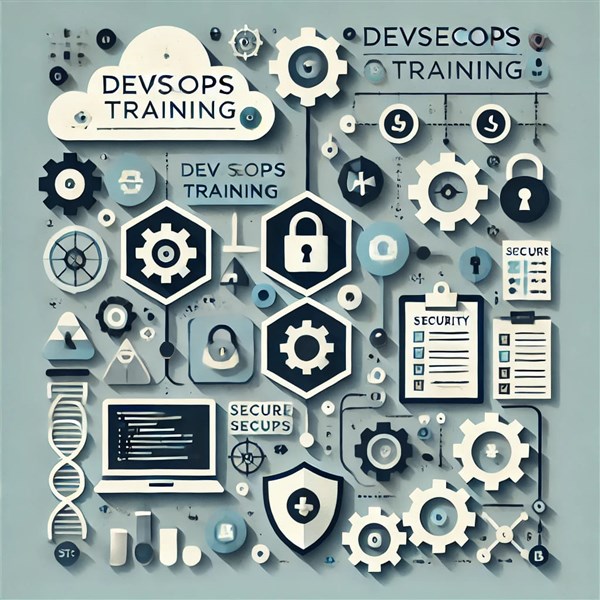Unable to find what you're searching for?
We're here to help you find it
In today’s fast-paced software development landscape, security threats are evolving as rapidly as new technologies. Traditional security approaches, where security checks occur at the end of the development cycle, are no longer sufficient. Enter DevSecOps—a methodology that integrates security into every stage of the software development lifecycle (SDLC), ensuring that applications are not only functional but also secure from the ground up.
However, adopting DevSecOps effectively requires proper training. Without the right knowledge and skills, teams may struggle to implement security best practices, automate security testing, and respond to vulnerabilities effectively. In this blog, we’ll explore why DevSecOps training is essential for modern software development, the key benefits it offers, and how organizations can implement a structured training approach.
DevSecOps stands for Development, Security, and Operations. It extends the principles of DevOps by embedding security directly into the development workflow. The main objectives of DevSecOps include:
While the concept of DevSecOps is gaining popularity, successfully implementing it requires a deep understanding of security practices, tools, and automation techniques. Here’s why DevSecOps training is critical:
Cybersecurity threats such as data breaches, ransomware attacks, and API vulnerabilities are becoming more sophisticated. Without proper training, developers and operations teams may overlook critical security flaws. DevSecOps training ensures that security is ingrained into development practices, reducing risks early in the lifecycle.
One of the biggest challenges organizations face is a lack of security awareness among development teams. DevSecOps training fosters a security-first mindset, encouraging teams to prioritize security alongside functionality and performance.
Industries such as finance, healthcare, and government must comply with stringent security standards (e.g., GDPR, HIPAA, PCI-DSS). DevSecOps training helps teams understand how to integrate security controls into their workflows, ensuring compliance without slowing down development.
A common misconception is that security slows down development. On the contrary, well-implemented DevSecOps practices automate security tasks, allowing teams to detect and fix vulnerabilities without disrupting the development timeline. Training helps professionals learn how to leverage security automation tools effectively.
With the increasing adoption of cloud computing, securing cloud-native applications is a major concern. DevSecOps training covers best practices for securing cloud environments, including container security, Infrastructure as Code (IaC), and identity and access management (IAM).
To build a successful DevSecOps training program, organizations should focus on several core areas:
Developers should be trained on secure coding principles, including:
Understanding how to integrate and use security tools within CI/CD pipelines is crucial. Training should cover:
DevSecOps training should include threat modeling techniques to help teams anticipate and mitigate potential security threats before they become critical vulnerabilities.
Security is an ongoing process. Training should cover:
Teams must understand industry security standards and compliance frameworks, such as:
The best way to learn DevSecOps is through real-world scenarios. Organizations can use:
There are several reputable online courses and certifications for DevSecOps, including:
Organizations should make security training an integral part of their DevOps workflow. This includes:
DevSecOps training should involve not only developers but also security engineers, IT operations, and compliance teams. Encouraging collaboration across teams helps bridge security gaps in software development.
As cyber threats continue to evolve, DevSecOps training will become even more critical. Future trends in DevSecOps training include:
Conclusion
DevSecOps training is no longer optional—it is a necessity for modern software development. With increasing security threats, regulatory requirements, and the need for rapid development cycles, organizations must invest in training their teams to build secure software from the ground up.
By adopting a security-first mindset, integrating security automation tools, and fostering collaboration between teams, businesses can ensure their software remains resilient against cyber threats. Investing in DevSecOps training today will lead to more secure, efficient, and compliant software development in the future.
As a leading IT training company, Koenig Solutions offers comprehensive DevSecOps training courses. We ensure that our training courses are up-to-date with industry standards and provide learners with the skills necessary to excel in the modern software development landscape.
Our DevSecOps courses are designed to provide a deep understanding of DevSecOps methodologies, tools, and best practices. We also focus on practical training, where learners get hands-on experience in implementing DevSecOps in real-world scenarios.
By choosing Koenig Solutions for your DevSecOps training, you're equipping yourself with the skills required to thrive in the modern software development ecosystem.

Aarav Goel has top education industry knowledge with 4 years of experience. Being a passionate blogger also does blogging on the technology niche.










